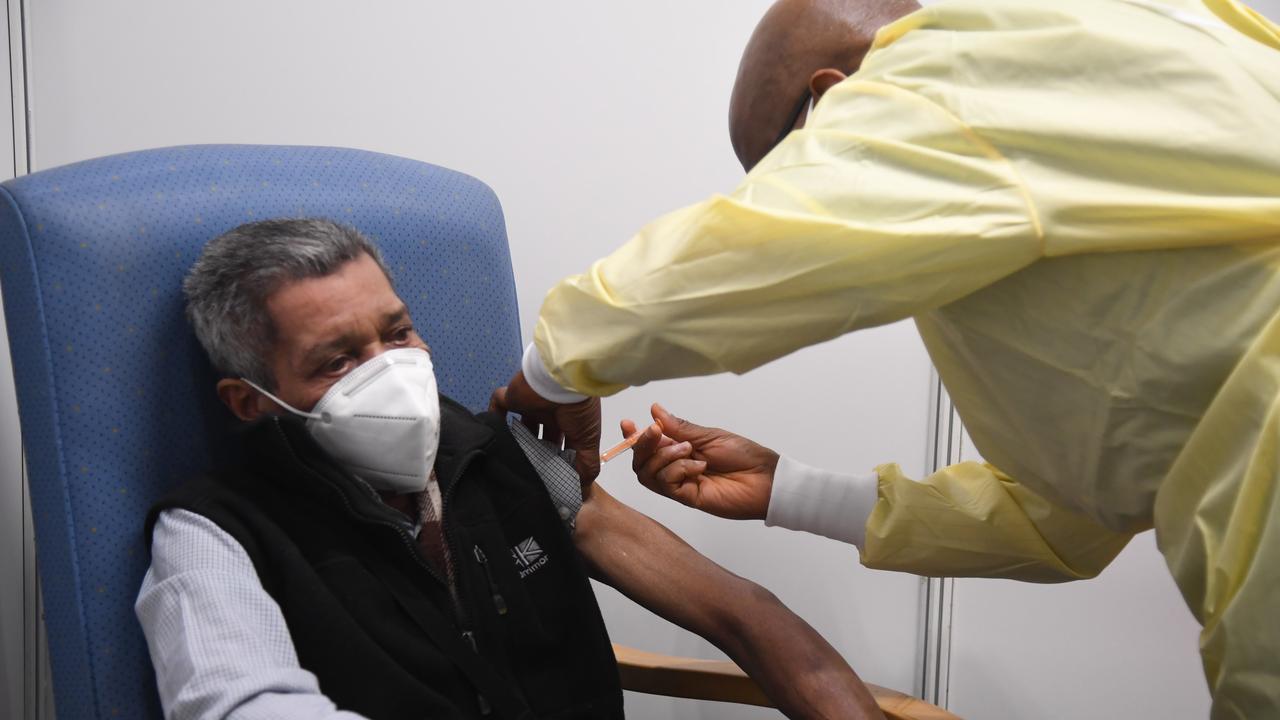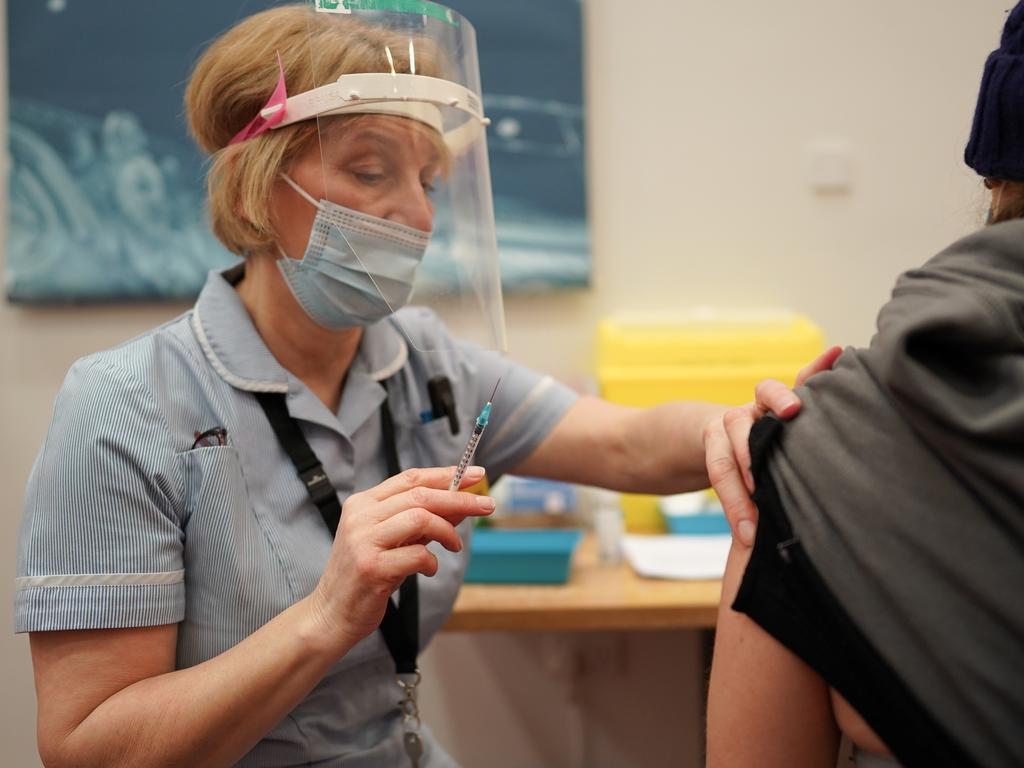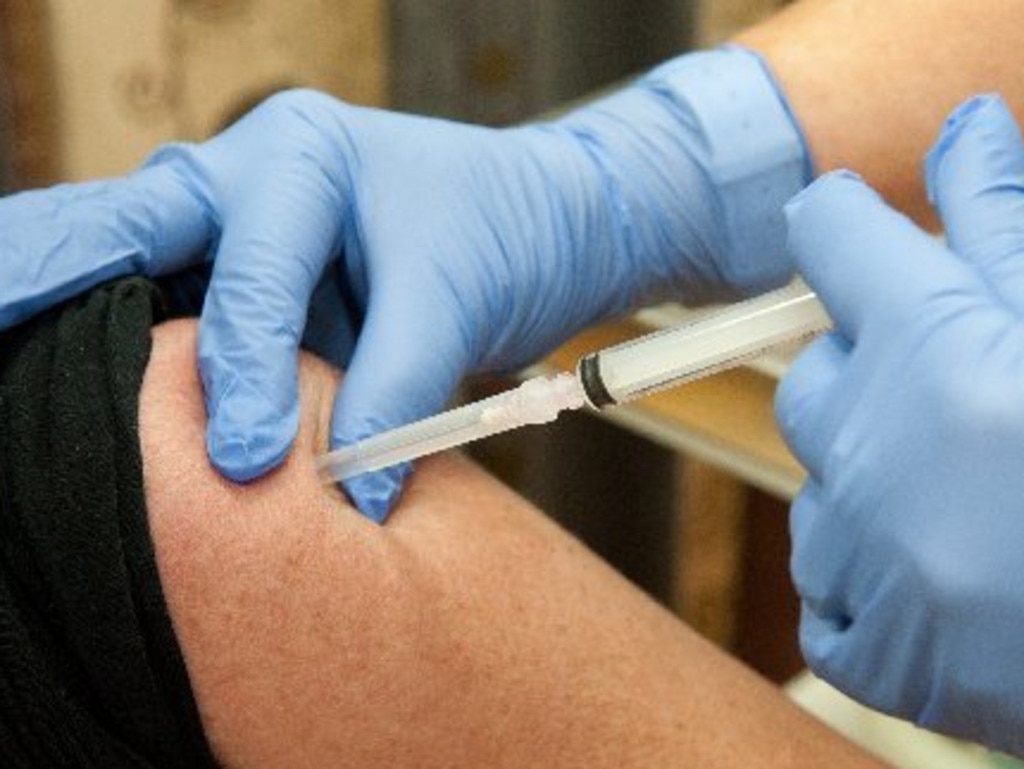UK vaccine debacle shows jab is no silver bullet
People who have had COVID-19 have similar levels of protection to those who’ve had a jab, scientists revealed amid a chaotic rollout.

People who have recovered from COVID-19 have a similar level of protection to those who have had a vaccine, scientists have discovered as the accelerated UK rollout faces a series of problems.
A study from Public Health England published Thursday suggested that past coronavirus infection provides 83% immunity for at least five months — although people may still carry and transmit the virus.
And a health official warned that the vaccines may not be fully effective against the Brazilian or South African coronavirus variants.
It comes as many elderly people and frontline health workers still haven’t received a vaccine and there are questions over whether the UK can hit its ambitious target as it races to protect priority groups by mid-February amid soaring infections and deaths.
Over 80s in parts of England were reportedly being asked them to travel more than 100 miles to get the vaccine this weekend while others walked for an hour in the snow to get their jab.
The UK Government has pledged to offer the jab to 15 million of its most vulnerable populations by mid-February. But with such challenges, an “offer” many not result in an incoluation.

Taiwo Owatemi, MP for Coventry North in England’s Midlands, tweeted that over-80s in the area were being asked to travel more than 100 miles for a vaccine and said UK Health Secretary Matt Hancock “needs to take the wellbeing of our city seriously and sort this out.”
She said she had written to Mr Hancock several weeks ago “about delays in the rollout of the vaccine and the extra costs incurred by these delays on GP practices” and had not received a reply.
RELATED: ‘New storm brewing’ in Europe
Ms Owatemi’s letter said that clinics had wasted funds employing extra staff and booking in patients before a “supply chain breakdown” meant essential equipment was not delivered and forced them to cancel. She warned that over-80s who in many cases may need assistance getting to a clinic were being sent to unfamiliar locations some distance away.
A spokesperson for NHS England and NHS Improvement in the Midlands said: “Patients in this area have a choice about where to be vaccinated, they can opt to attend one of their local vaccination centres or attend Birmingham’s Millennium Point.”
Lindsay Gollin, a practice manager in Leeds in northern England, tweeted: “Talking to 2 pts who walked for 1+ hour in the snow to get their Covid vaccine. We are frantically inviting - over 100 cancelled appts to fill as snow keeps people home.”
MUTANT STRAINS MAY REQUIRE MODIFIED VACCINE
Meanwhile, the UK’s Chief Scientific Adviser Patrick Vallance said “we don’t know for sure” whether the vaccines will work against the Brazilian and South African mutant strains.
“There’s a bit more of a risk that this might make a change to the way the immune system recognises it but we don’t know,” he told ITV’s Robert Peston.
RELATED: Australia faces huge vaccine challenge
He said experiments were underway to find out more.
Sir Vallance said that the Brazilian and South African variants had a change of the genetic code position, which changes the shape of the protein and affects how well antibodies may stick to them.
He said that, as seen with the flu, he expected mutations over the years that change the virus, meaning it was “completely conceivable that we’re going to need a modified vaccine.
The UK has now approved the Pfizer/BioNTech, AstraZeneca and Moderna vaccines, as the daily death toll hit a record 1,564 on Wednesday. It has now reported more than 84,000 deaths and 3.2 million cases.
PHE scientists working on the antibodies study said that naturally acquired immunity as a result of past infections provides 83% protection against reinfection, compared to people who have not had the disease before. This appears to last at least for five months on average from first becoming sick.

But the researchers warned that although those with antibodies have some protection from becoming ill with COVID-19 themselves, early evidence from the next stage of the study suggests that some of these individuals carry high levels of virus and could continue to transmit the virus to others.
PHE’s SIREN (SARS-CoV-2 Immunity and Reinfection Evaluation) performed regular antibody and PCR testing on 20,787 healthcare workers since the study started in June, with 6,614 of these participants testing positive for COVID-19 antibodies upon recruitment.
Only 44 potential reinfections were identified by the study. If all 44 possible cases were confirmed, it would represent an 83% rate of protection from reinfection, while if only the two “probable” reinfections were confirmed, the rate would be 99%.
Scientists are currently studying whether antibody protection may last for longer. The current findings mean that many people who contracted the disease in the first wave may now be vulnerable to catching it again.
Professor Susan Hopkins, Senior Medical Adviser at Public Health England and the SIREN study lead said: “This study has given us the clearest picture to date of the nature of antibody protection against COVID-19 but it is critical people do not misunderstand these early findings.
“We now know that most of those who have had the virus, and developed antibodies, are protected from reinfection, but this is not total and we do not yet know how long protection lasts. Crucially, we believe people may still be able to pass the virus on.
“This means even if you believe you already had the disease and are protected, you can be reassured it is highly unlikely you will develop severe infections but there is still a risk that you could acquire an infection and transmit to others.”
These UK discoveries — as well as those from other nations — may provide important lessons for Australia as it prepares for its vaccine rollout.




